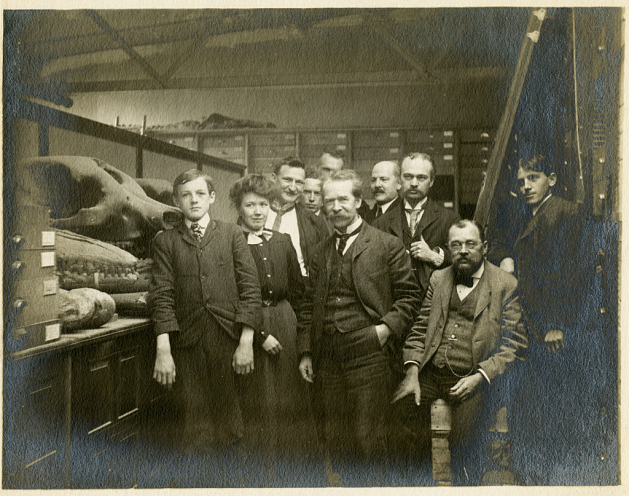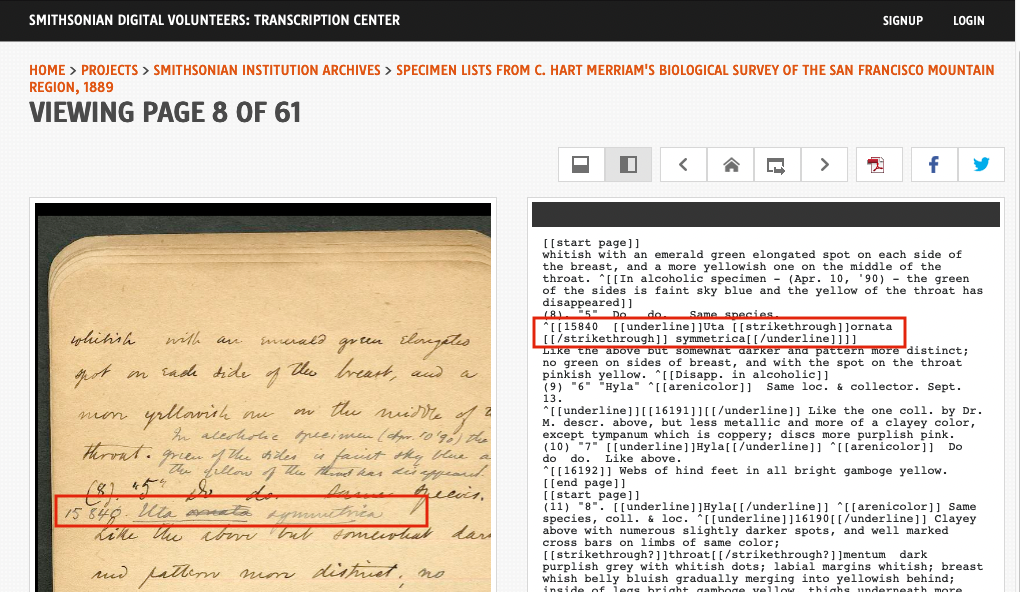During my time in the Kathryn Turner Diversity and Technology Internship, I worked with my mentor to create a program/software that would take completed projects from the Smithsonian Transcription Center more »
Tag: Field Books
Argentine grass expert Dr. Cleofé E. Calderón (1929-2007) collected species, published descriptions of rare and unusual plants, and led workshops that helped shape the field of bamboo taxonomy. Affiliated with more »
This post first appeared on the Smithsonian Institution Archives’ blog. Being an avid reader, every once in a while an item comes across my desk for digitization with such an more »

From May 13-20th, the Smithsonian Libraries is participating in the #DigIntoDyar campaign – encouraging the public to transcribe the field books of this remarkable entomologist in the Smithsonian Transcription Center and to learn more about his life and work. This post was written by Marc Epstein, Research Associate at the National Museum of Natural History and author of Moths, Myths and Mosquitos:The Eccentric Life of Harrison G. Dyar, Jr.. You can read Marc’s first post about Dyar here and second here.
Harrison Dyar’s scientific legacy has been overshadowed because he dug extensive underground labyrinths and because of his known bigamy (both explored in-depth in this Washington Post series). His family wealth allowed him to either work gratis or for a pittance at the Smithsonian from 1897-1929.
From May 13-20th, the Smithsonian Libraries is participating in the #DigIntoDyar campaign – encouraging the public to transcribe the field books of this remarkable entomologist in the Smithsonian Transcription Center more »
The Smithsonian Field Book Project is showcasing Frederick William True in February. This post is part of a series of blogs and social media content from the Biodiversity Heritage Library, Pyenson Lab, Smithsonian Transcription Center,and Smithsonian Institution Archives, celebrating #FWTrueLove.The campaign will include a fascinating new transcription project and exciting behind-the-scenes opportunities! Learn more on the Field Books Project blog.



